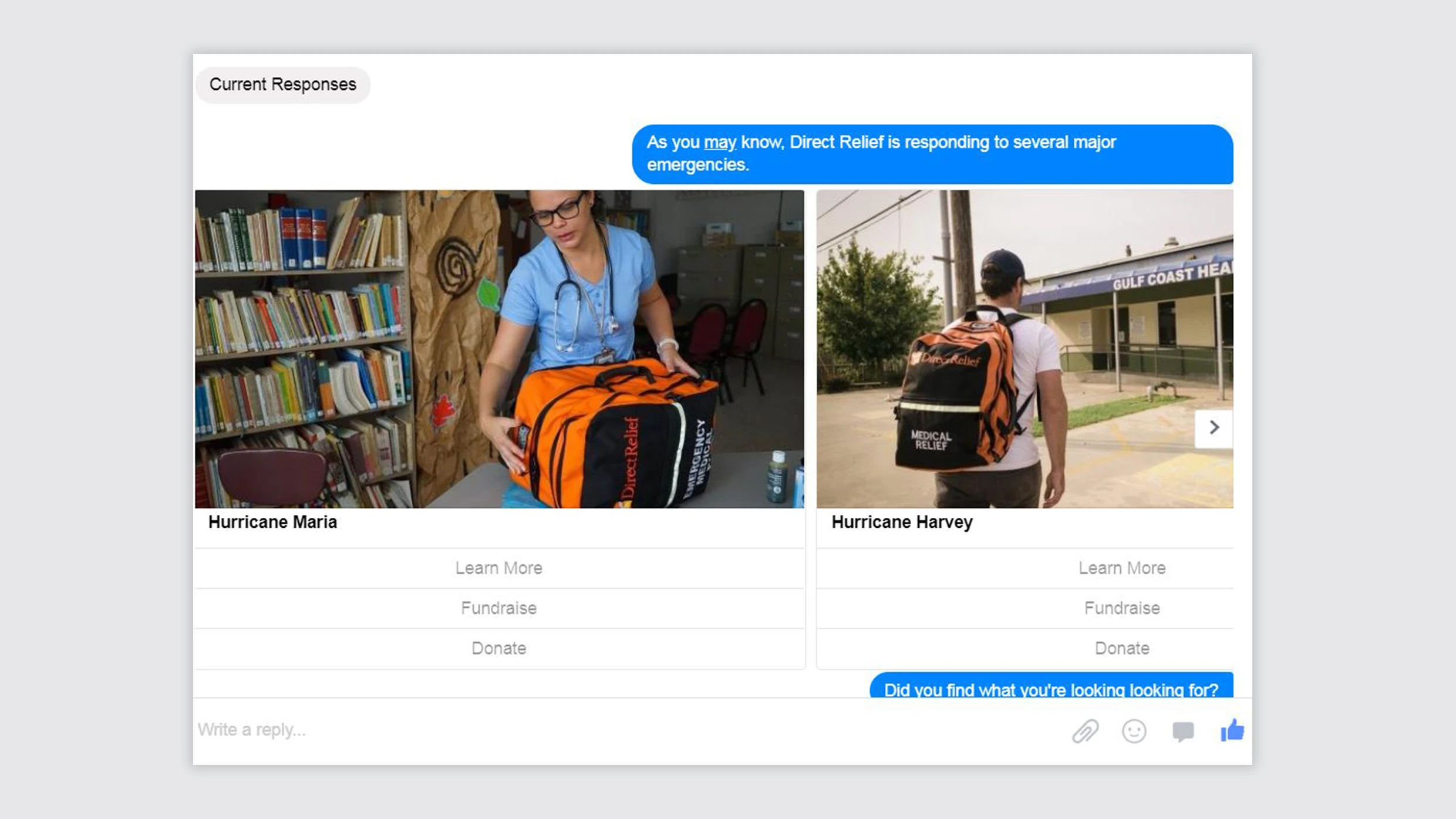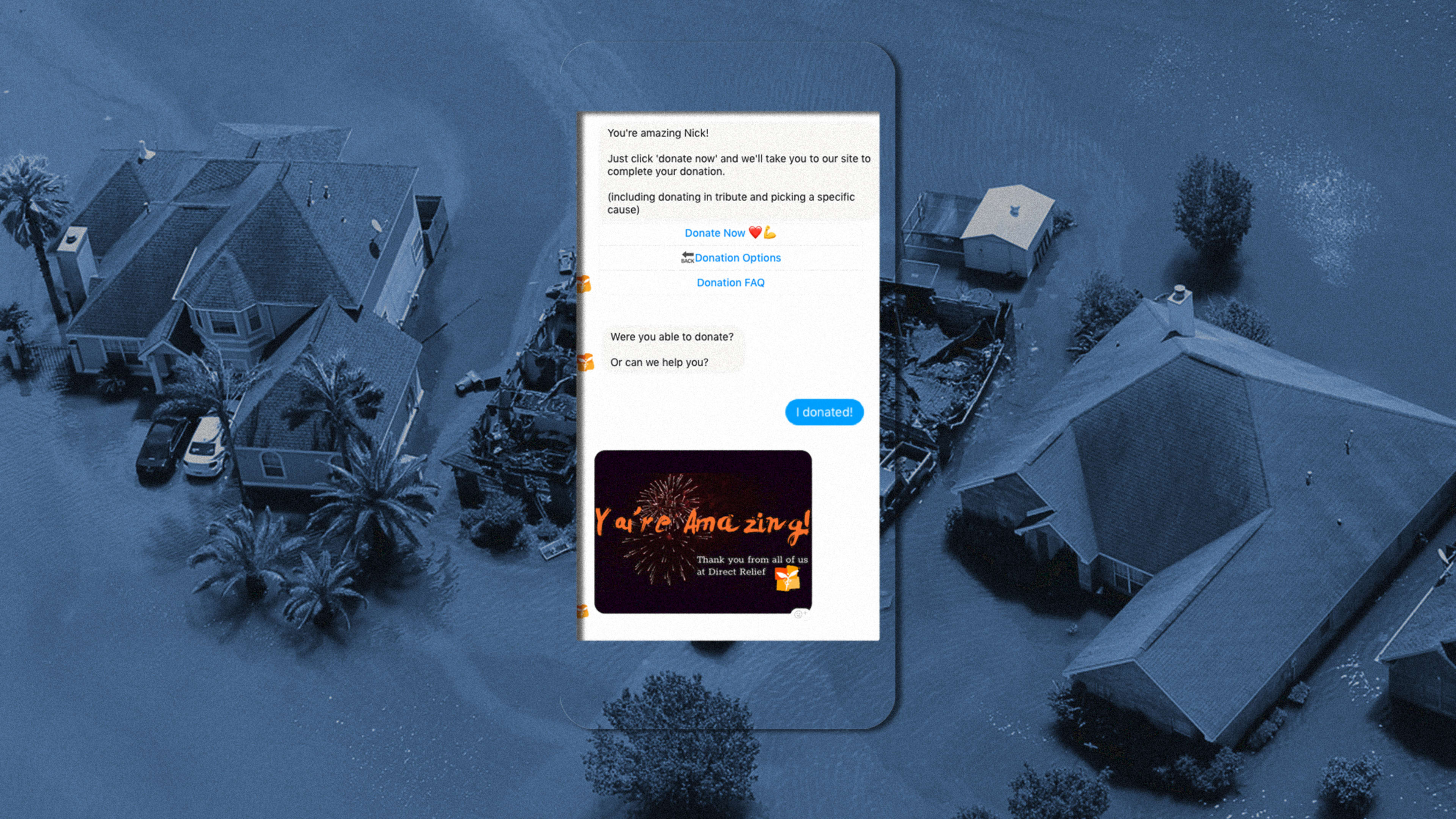After Hurricane Harvey struck Texas in mid-2017, nonprofit Direct Relief encountered its own customer service disaster. The humanitarian aid group, which delivers medical aid and other support in crisis areas, expected to be able to use Facebook Messenger to answer questions from people wanting to help or seeking it. But its response time jumped from less than an hour to two days as more and more messages poured in.
To fix that, the company built a chatbot—but one that’s slightly more empathetic than typical customer-service automatons. It’s since proven to dramatically cut response times and allow people with special needs to reach real humans. Now Direct Relief and its bot builder, Mind Heros, have open-sourced their model. It’s available for free to other nonprofits through BotsForCharity.com. At least 200 charities have expressed interest.
“Identifying the need was pretty easy,” says Direct Relief CEO Thomas Tighe. “The last thing you want to do is leave anyone frustrated who is interested or wants to help. And we just did not have the staff bandwidth to deal with the volume of inquiries and emails and requests that we are receiving with the staff we have.”

The group deployed an internally made prototype on Facebook after Hurricane Maria hit Puerto Rico in October 2017. It offered basic information about Direct Relief services and operations. After hundreds of people began engaging, the group realized they needed more capabilities and started working with Mind Heros. A bilingual version with Spanish translation was deployed in April 2018, which included the ability to receive requests for assistance and offers for partnership or volunteering.
Last year, Direct Relief’s bot handled more than 6,000 requests—with an average response time of less than a minute. The charitable build-a-bot program allows organizations to put in their name and some basic website information. It can then redirect users to the right prompts for questions about how to donate, volunteer, receive assistance, or learn more information about the group. If users need to ask more general questions, they can say that, setting up the option to access an FAQ page or reach a live person who, not being tied up with the simple requests the bot can answer, has more time to field a complex request.
To set it up, “there’s very little work that [nonprofits] absolutely have to do,” says Mind Heros founder Nick Julia. “We tried to keep it as simple and accessible as possible.” Direct Relief says that part of its contract with Mind Heros included making the free offering.
“We didn’t develop a technology. We kind of probably made the case for why that was needed,” Tighe adds. “Human beings need to do things like sleep and eat and, you know, go to the restroom. And the bots are always awake and responsive.” On the back end, Direct Relief gets to learn what people are asking to figure out how to better share information or refine its services.
Both Tighe and Julia are clear that this is less about cutting humans out of the equation than prioritizing when they’re important. For instance, if someone in a disaster zone is desperately seeking insulin, the group can immediately flag that and try to find a solution based on where they know supplies are deployed.
“The way that Direct Relief has implemented the bot makes a lot of sense for other nonprofits,” Julia adds. “They’re answering a lot of questions, available 24/7. However, there is still always going to be a live person there to answer more complicated questions. You’ll get some really unhappy people if you try to do everything through the bot, so it’s not for everything.” But that speed and efficiency might save more lives.
Recognize your brand’s excellence by applying to this year’s Brands That Matter Awards before the early-rate deadline, May 3.
